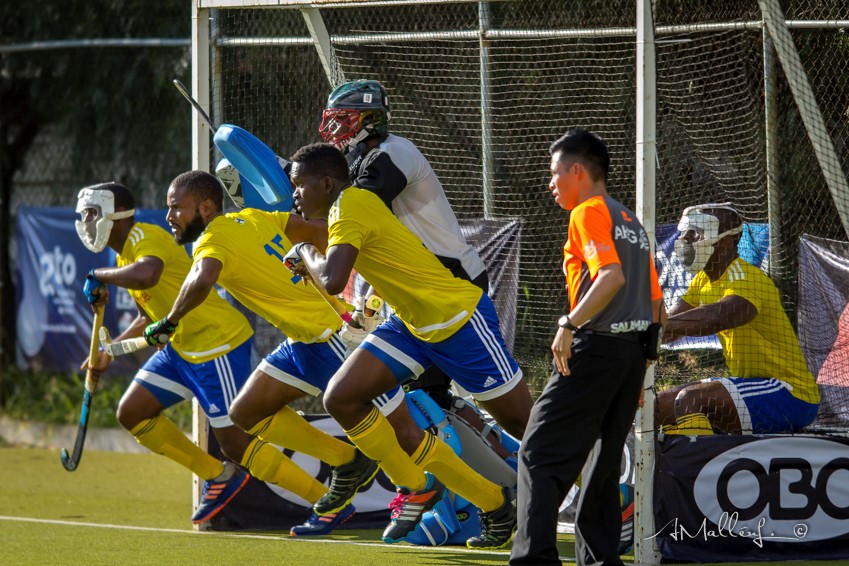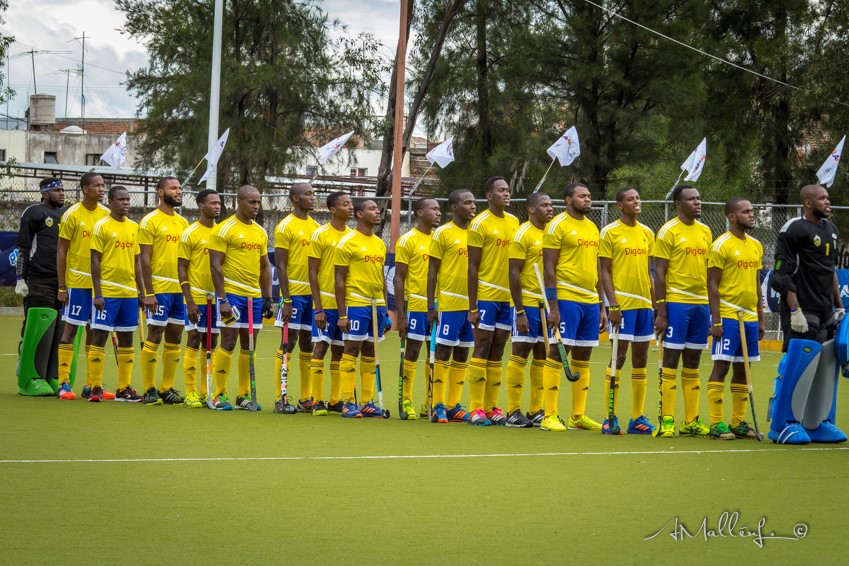
The past few months have been quite something for the Barbados men’s hockey team. Ranked 48 in the world, up from 56, field hockey in the Caribbean nation has always been something of a poor relative to a number of other sports, notably football (soccer) and cricket. However, with qualification to the second round of the Hockey World League (HWL) courtesy of a second place finish in the HWL Round One event, Barbados hockey is experiencing a resurgence.
However, in a typical catch-22 situation, with success and growth comes rising costs. The problem facing Barbados, as with many other nations, is how to fund their training, preparation, travel as well as all the costs associated with the actual competition. It is a problem the team has faced before, explains Dave Cox, assistant manager to the national team.
“For Round One we didn't have significant help from the Barbados Hockey Federation due to a lack of funding so we had to find ways to self-fund,” says Cox. “Firstly, we had to raise US$45,000 to facilitate a pre-tour to Trinidad for four games. Then we had to find the finances to pay for our trip to Salamanca, Mexico [where HWL R1 took place], our uniforms, practice equipment, video and communications equipment – everything we needed to ensure we were as prepared for competition as possible.”
Not attending the tournament was never an option for the management team of Cox, head coach Dominic Hill, team manager Antonio Forte, Alain Hinds, assistant manager and video analyst Jonathan Ruck. They saw the HWL Round One as a great opportunity to drive hockey forwards on the Caribbean island and get some much needed exposure, both nationally but also on a global stage. “It was a pivotal moment in our hockey development and not attending the tournament and getting the exposure would have retarded our development as a hockey nation”, reflects Cox.
So the group came up with a fund raising strategy, with the starting point a list of potential sponsors. First to throw its weight (and money) at the problem was giant mobile phone network provider, Digicel. The company, which operates across the Caribbean, Central America and Oceania, provided a significant donation which helped kick-start the campaign.
Digicel’s donation provided a catalyst for other companies to get on board. The Barbados Olympic Association helped out with the cost of flights; hockey specialists Osaka provided sticks, balls, bags and shoes to the team – all items that are difficult to source in the Caribbean – and the University of the West Indies gave the team access to training facilities.
Unbelievably, this still wasn’t enough to fund the team’s expenses and so family and friends dug into their pockets to support the players, as well as donors who gave generously via a GoFundMe account. Dave Cox says that despite this support, there is still a small debt to be paid off.
But for the players and coaching staff the fund raising efforts were worth it. A second place finish in Salamanca, qualification for HWL Round Two and a move up the International Hockey Federation World rankings from 54 to 48 are all signs that hockey is moving in the right direction.
And now, the team is eagerly looking ahead to that HWL R2 encounter which takes place in March, when they take on three teams they know well from Pan American competition – USA, Trinidad & Tobago and Chile – as well as Malaysia, Japan, Russia and Switzerland.
Cox says that training has been ramped up for the team since before HWL Round One. “Training for HWLR1 was four times per week, with two weekly pitch sessions and a further two physical sessions in the gym or on the track. We also had a video analysis session once per week and leading up to the tournament there were some sessions with a mental performance coach.”
While this is not quite at the level of a centrally funded team in terms of intensity and regularity, it is still an impressive training regime. Cox explains that this very professional approach is down to the drive and ambition of the squad and management team. “We have a strong management team led by Dominic Hill as the Head Coach. Importantly, we are all hockey players and most of us have represented our country”.
“We then have a supporting staff of managers, video analysts, trainers and a sports performance expert. These are things most international programs now have, so to compete at this level we first had to recognize that the way things had been done in the past was not conducive to sustained development so we needed to introduce these other, more professional elements.”
The astonishing and inspirational thing about the Barbados coaching and management team is that it is all done on a voluntary basis. Not only do these dedicated people coach and prepare the team for competition – a tough enough ask by itself – they also run the fund raising efforts.
“We are trying our best to be responsible for the funding of the program by ourselves,” says Cox. “This way, we can really push to make sure we are getting the funds to meet our goals of getting the team higher in the FIH rankings.”
One way the coaches are developing their players is by watching and learning from other national programs. “The group has experience and exposure to other national programs in the world and we use this to set up the framework for the players and management.”
But, Cox adds, for the team to keep progressing, they need exposure to high quality international hockey competition at junior and senior level and, again, that is a question of funding. Every away fixture involves a flight, so even getting to a match is a huge expense.
The other astonishing thing about the Barbados’ story is that the island does not have an artificial pitch. One is due to be laid this year, but the national team and every club and school team in the country plays on grass or indoor surfaces. As Cox says: “There is a high school league and an adult league but it is hard to coordinate the leagues when there is a lack of viable playing surfaces.”
The prospect of a new turf and the team’s HWL journey are creating a buzz around hockey that has not been seen in years. “Qualification for Round Two was a huge accomplishment for us,” says Cox. “With no turf and no money we did a lot more than most people thought was possible. We want to take this opportunity to improve as players and coaches and raise the level in the island. Our goals are to break into the top 20 in the world in the next three years and also to attend the 2018 Commonwealth Games.”
Barbados will be competing in HWL Round Two in Tacarigua, Trinidad and Tobago, 25 March-2 April. They enter the contest as the lowest ranked team but on their current upward trajectory, and with the drive and passion of the coaching staff behind them, anything is possible.

